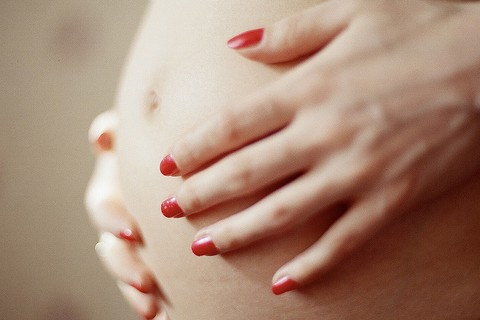Pregnancy After the Age of 35
It is true that some women do have trouble conceiving after the age of 35, but it is possible to get pregnant even into your 40’s. There are many reasons why a woman would wait until later in life to become pregnant, which could include going to college and building a career, enjoying the freedom of being able to travel, or simply because you just haven’t found the right person to start a family with yet. If you are trying to conceive later in life, there are a few things you should know about getting pregnant in your 40’s.

Fertility Problems
Once you reach the age of 35, it becomes increasingly difficult to conceive. A woman’s body loses about 13,000 eggs per year. Once she reaches the age of 37, her egg supply has dropped from 3-400,000 to 25,000. Once a woman reaches the age of 43, her egg supply is usually very low. A low supply of egg’s obviously reduces the amount of opportunities to conceive. Statics show that about two-thirds of women over the age of 40 will have some issues conceiving, and a woman has about a 5 percent chance of getting pregnant each month once she reaches the age of 40. A woman also has an increased chance of miscarriage once she is in her 40’s, as well.
Risk of Birth Defects and Pregnancy Complications
While the egg count of a woman declines as she ages, so does the quality of her eggs. This can put her offspring at a higher level risk for certain birth defects, such as Down syndrome. She also has increased risk for incurring complications during the pregnancy, such as preeclampsia or diabetes. Delivery may also carry certain risks for older mothers as they have a higher chance of going into preterm labor. Preterm labor typically means that a baby will have a low-birth weight. If the woman’s partner is also middle-age, there is an increased chance of the baby being born with birth defects, as the sperm quality of a man diminishes as he ages.
Tips for Getting Pregnant in Your 40’s
Although there are risks to getting pregnant over 40, there are benefits. Women have had time to pursue a career and become financially stable. While they may not feel as energetic as they once did, women in their 40’s usually have more patience, and studies have shown that women who are older tend to make healthier choices during pregnancy. If you are ready to get pregnant and you are in your 40’s, you should start by seeing your doctor and preparing your body for pregnancy. Your chances of conceiving on your own are better if you take care of yourself before getting pregnant. Here are a few tips for getting pregnant in your 40’s.
Stay Healthy: Being overweight or underweight can cause infertility in women, so it is important to take care of yourself physically. Maintain a healthy weight by exercising regularly, drinking plenty of water and eating the right foods. Avoid fatty or processed foods, and stick to a well-balanced, healthy diet. Take prenatal vitamins that contain folic acid every day. Avoid cigarettes and alcohol, and limit your caffeine intake.
Don’t Stress: While some women do have trouble conceiving in their 40’s, some younger women also have fertility problems. There are women who become pregnant on their own after the age of 40, so try not to stress if you have trouble conceiving at first. Stress can cause fertility issues, so try to relax and not worry too much.
Visit Your Doctor: If you have risk factors that would make your pregnancy high risk or you have been trying to conceive for several months without success, then it is time to visit your doctor. You may be referred to a fertility specialist who will conduct tests to see if either you or your partner have fertility problems. While getting pregnant in your 40’s is difficult because of declining egg quality, there are other options. A fertility specialist may recommend certain fertility medications, in vitro fertilization or using donor eggs.